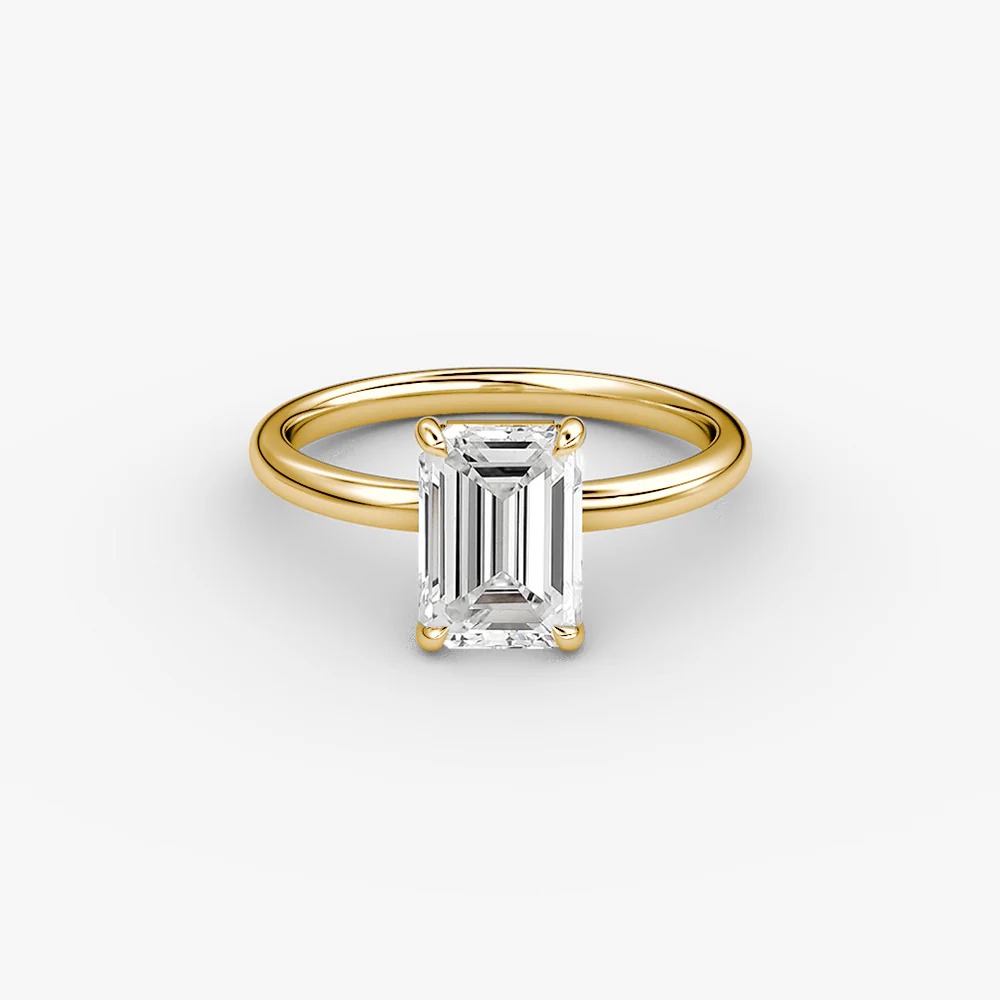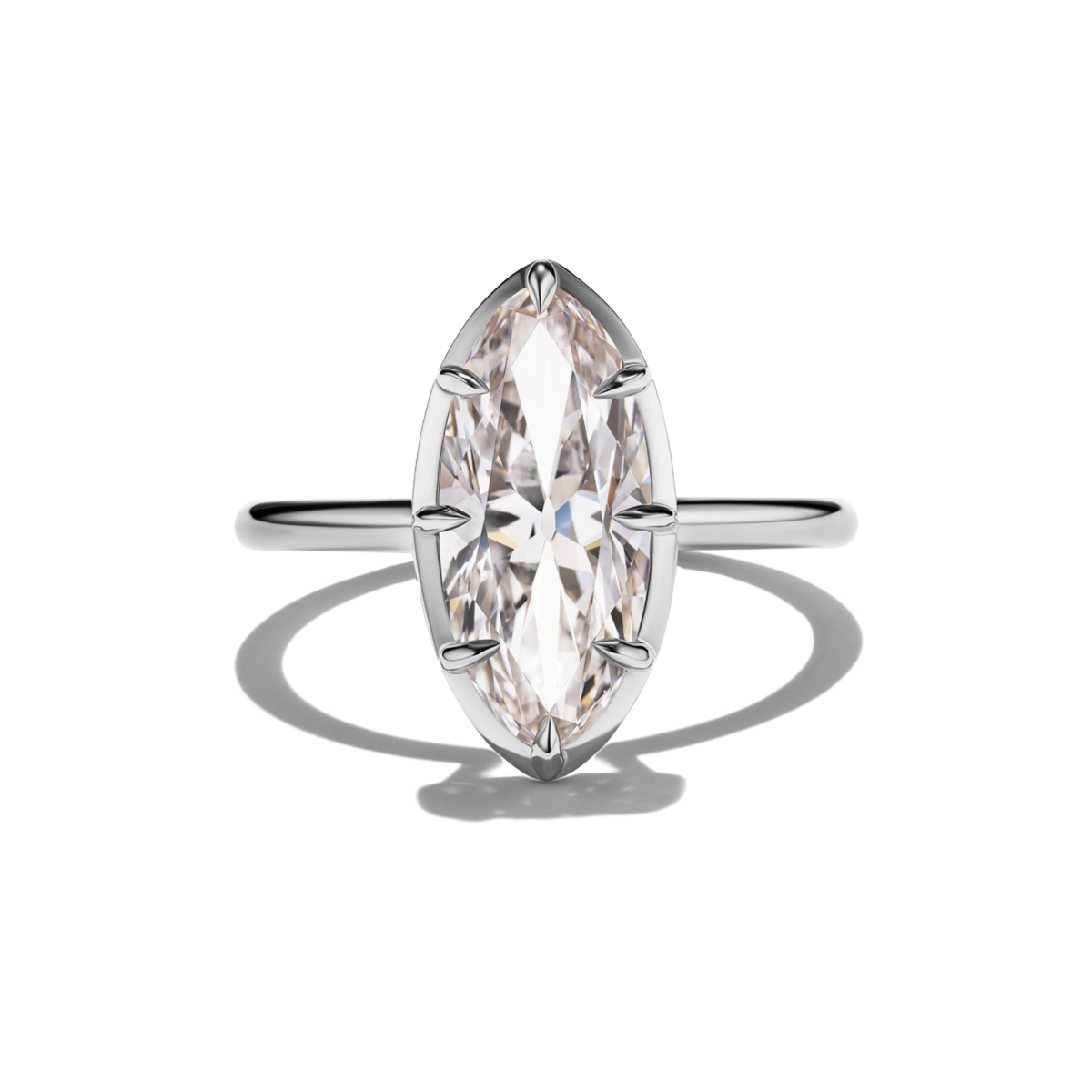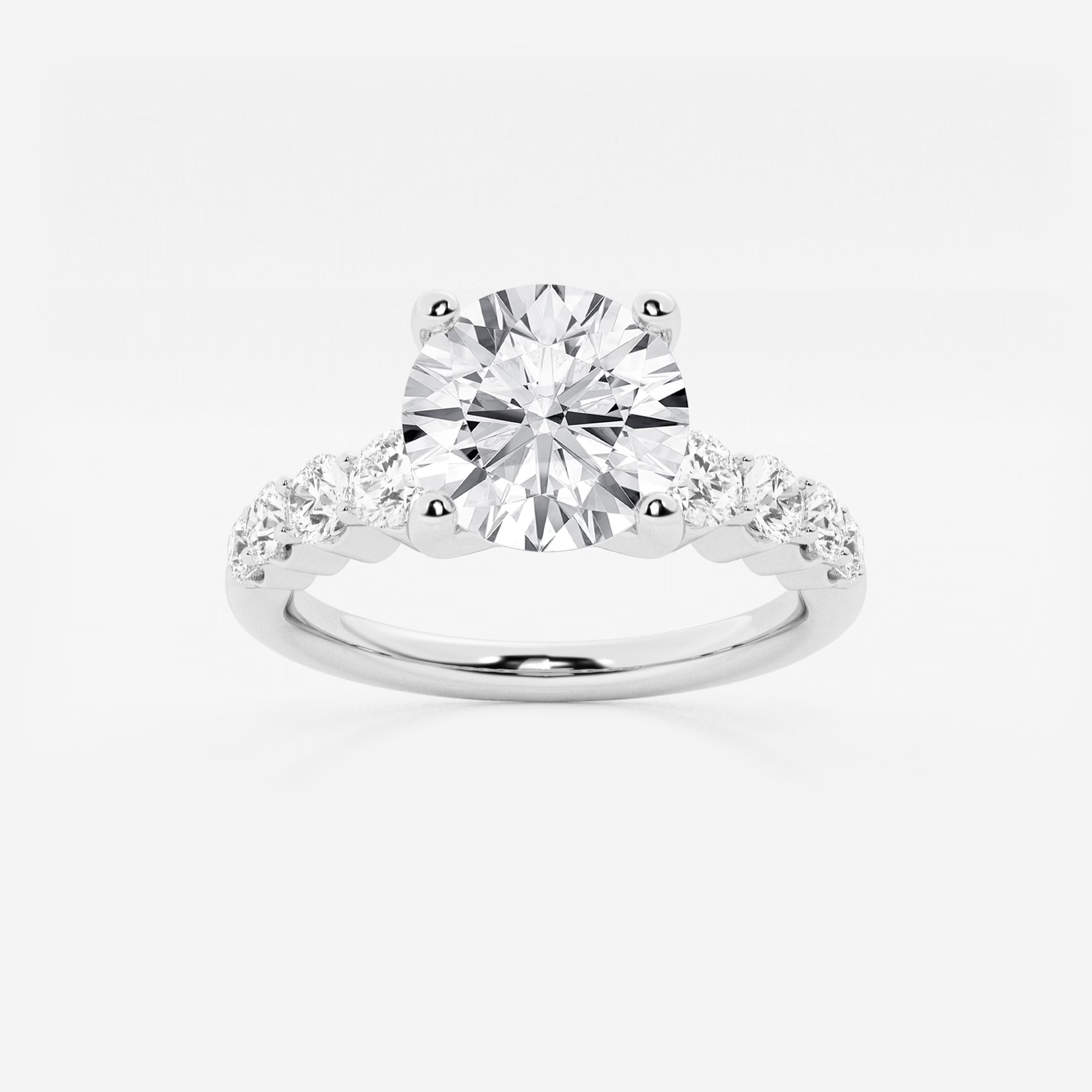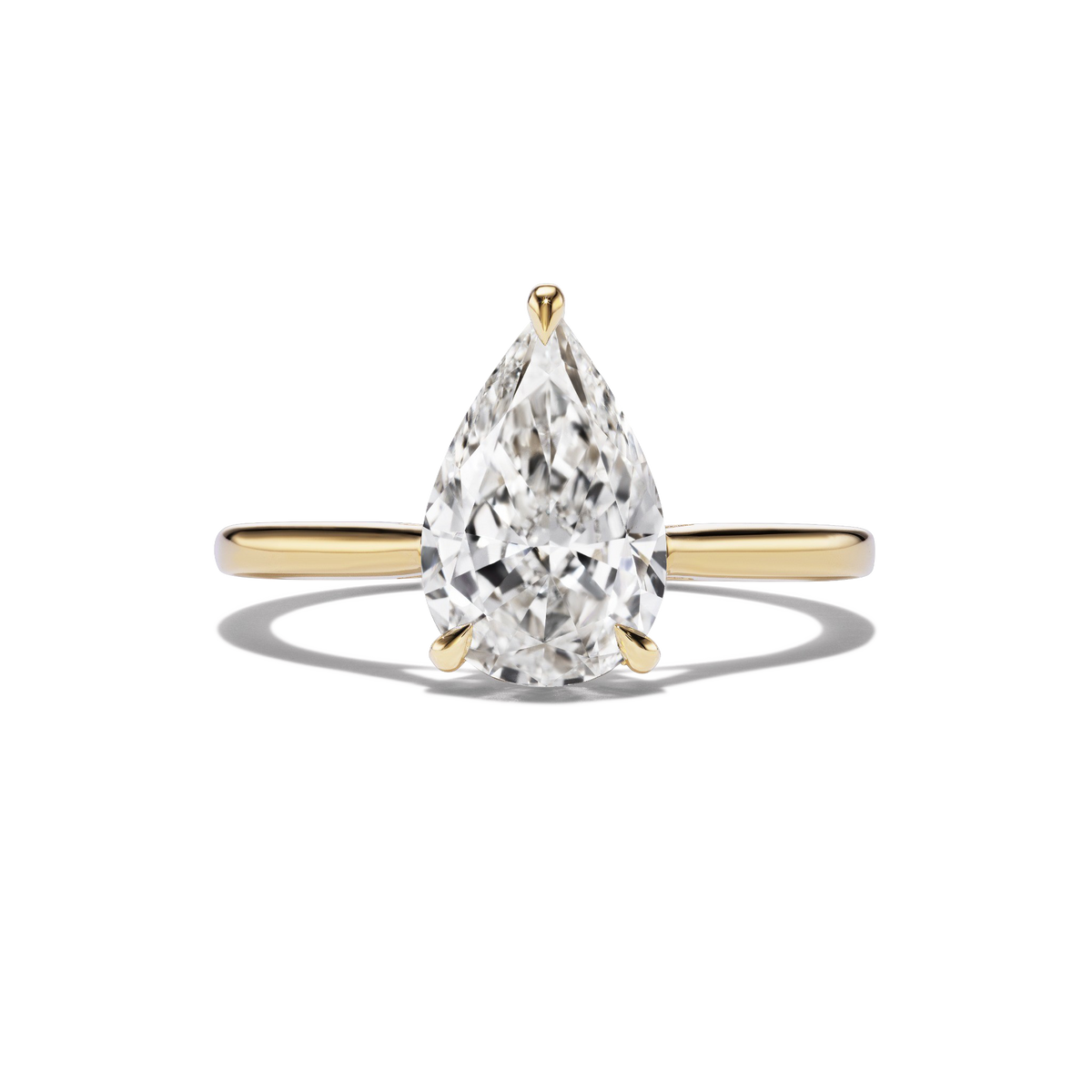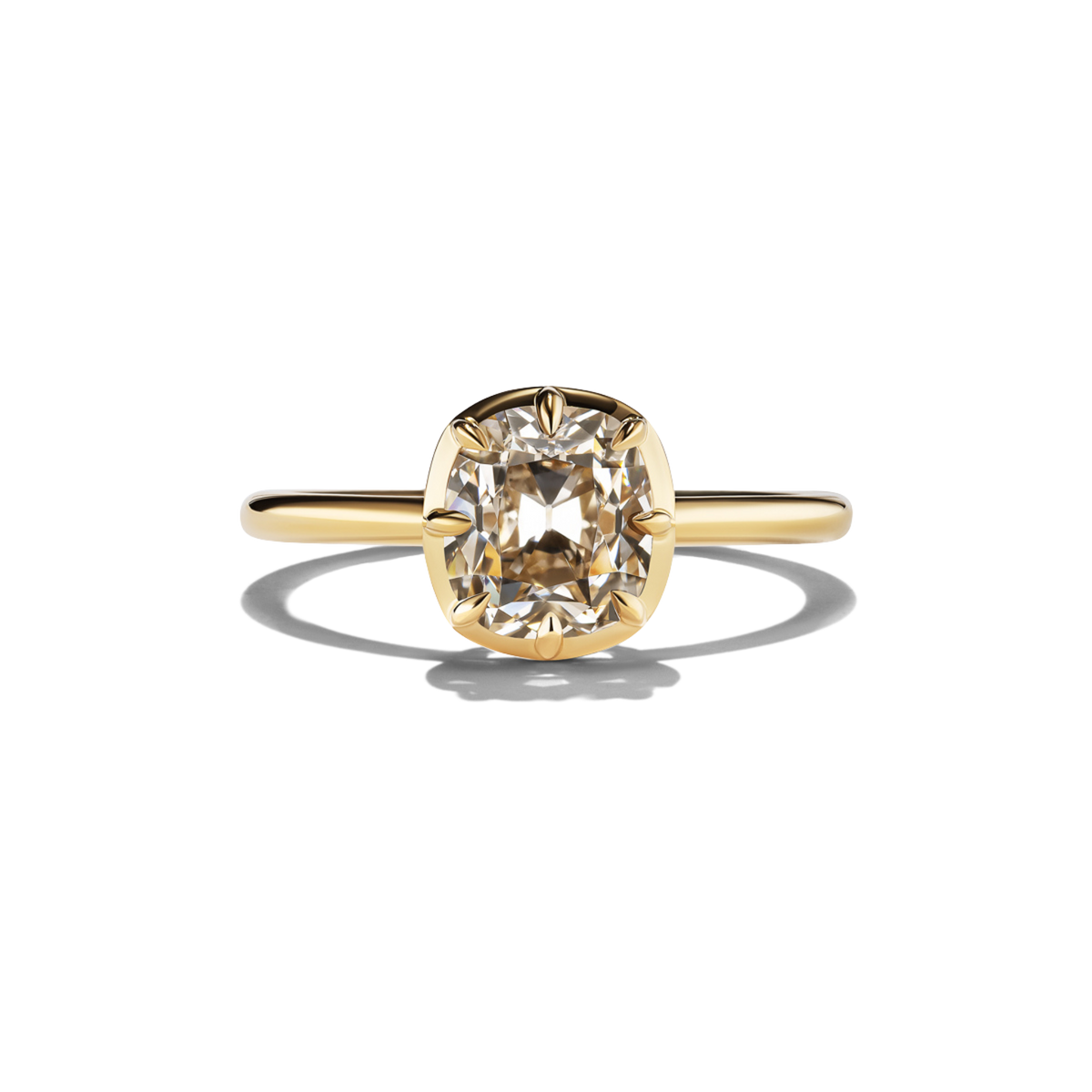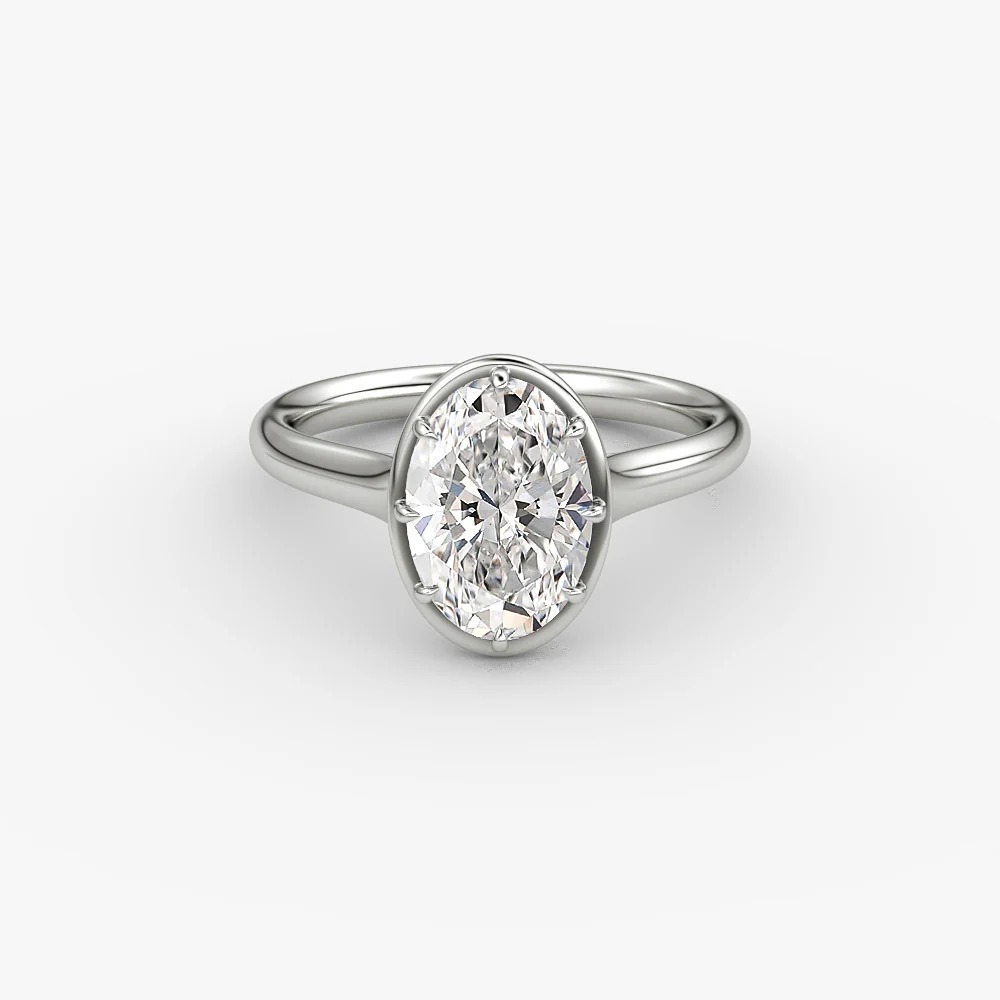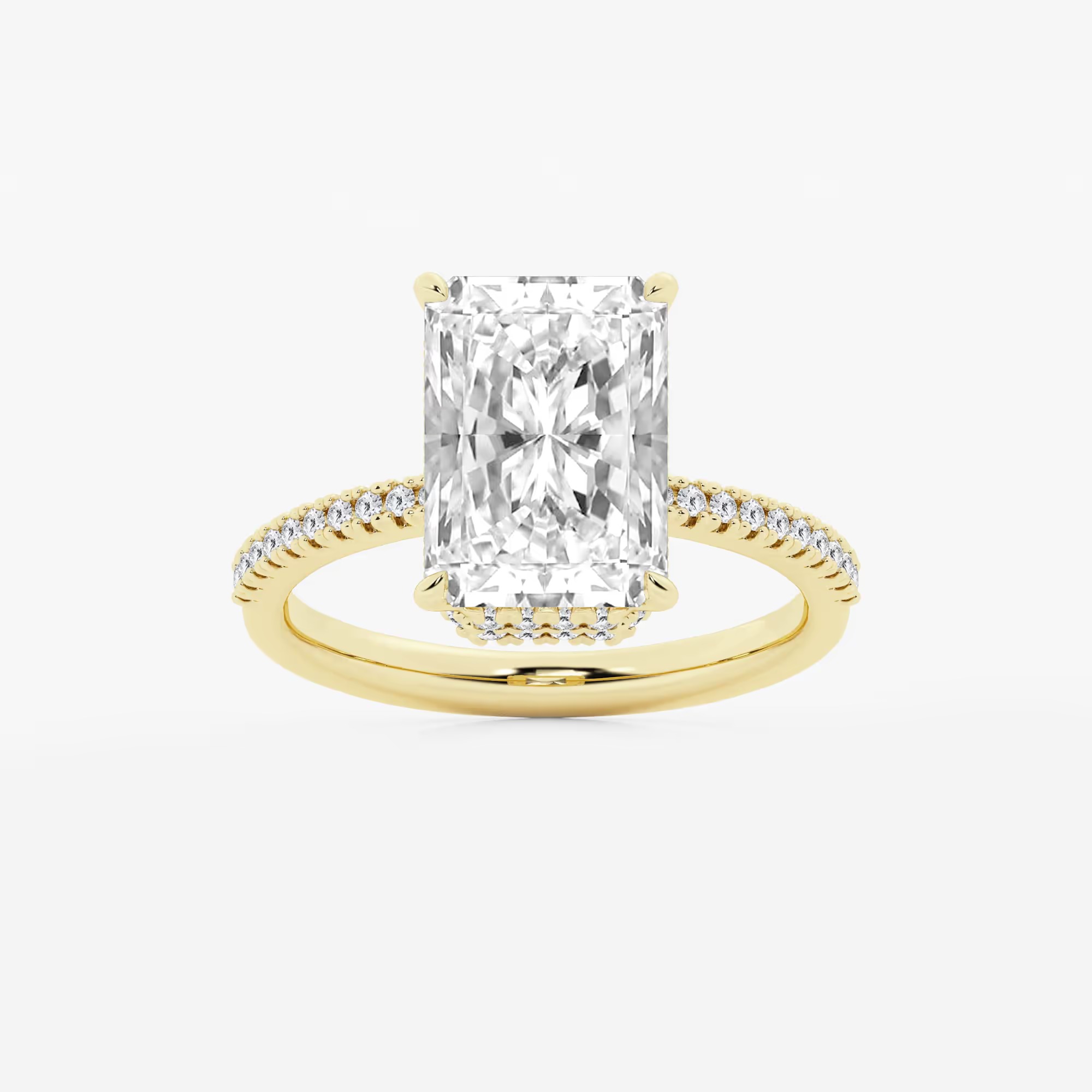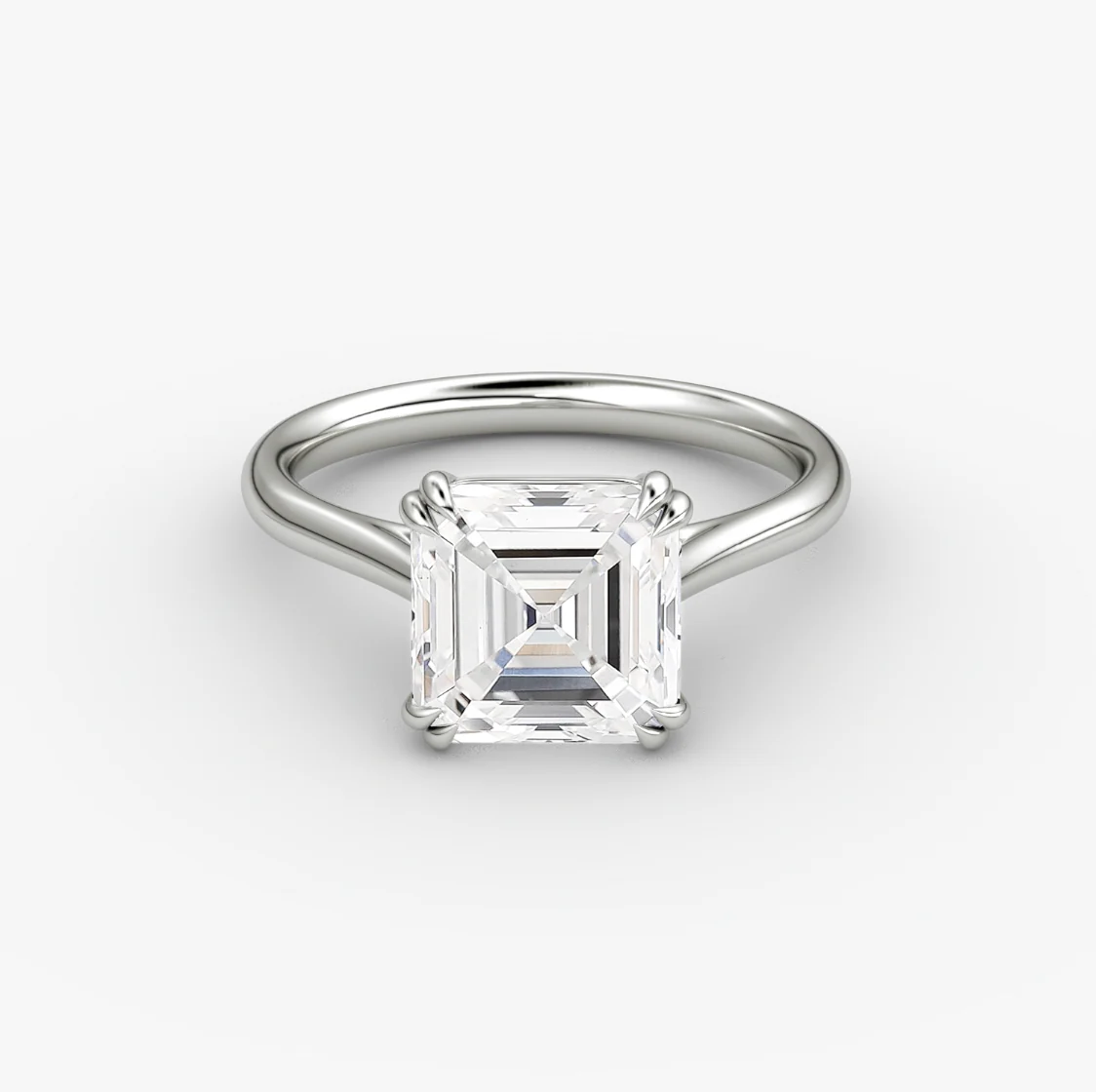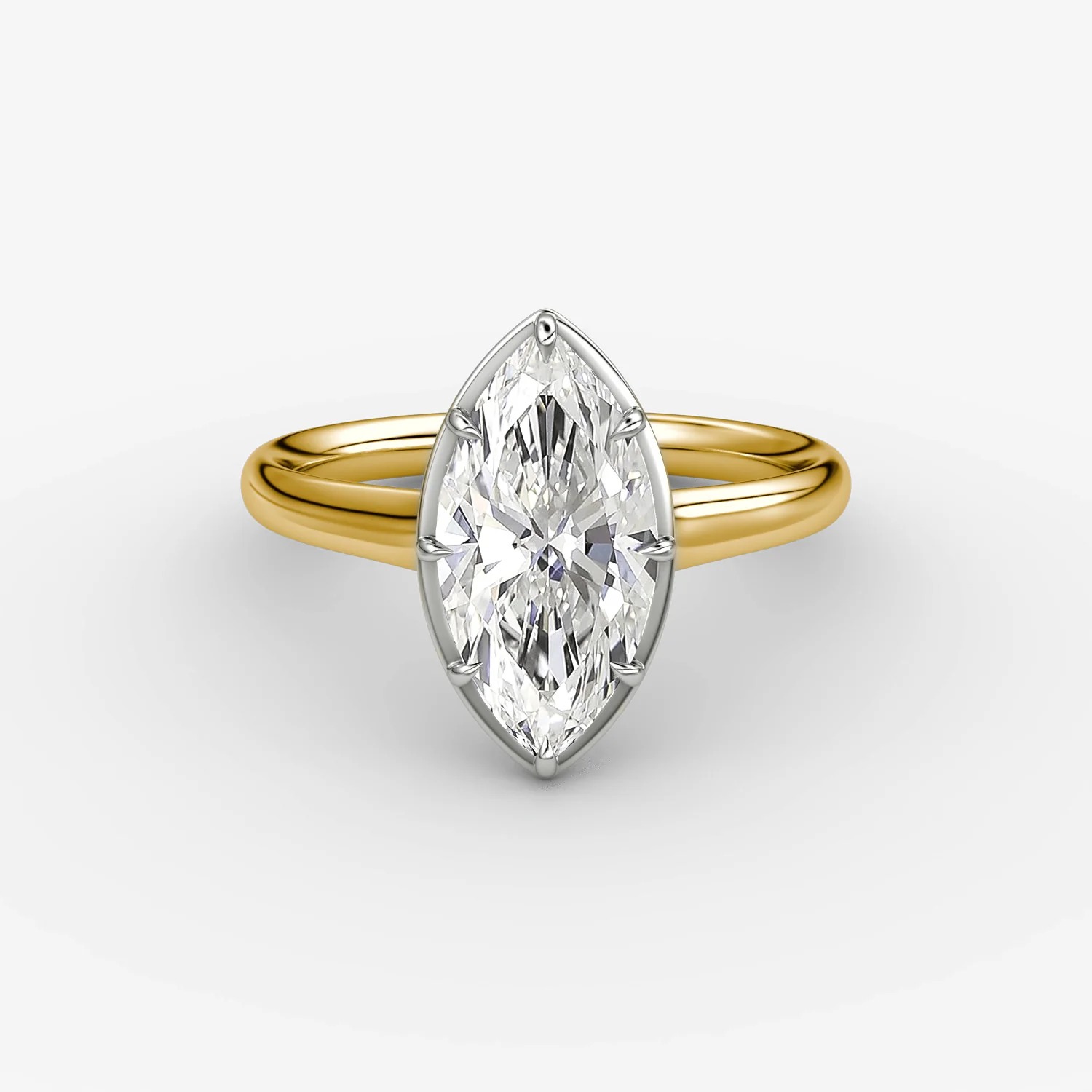Every Type of Engagement-Ring Cut Celebrities, From Taylor Swift to Elsa Hosk, Prefer
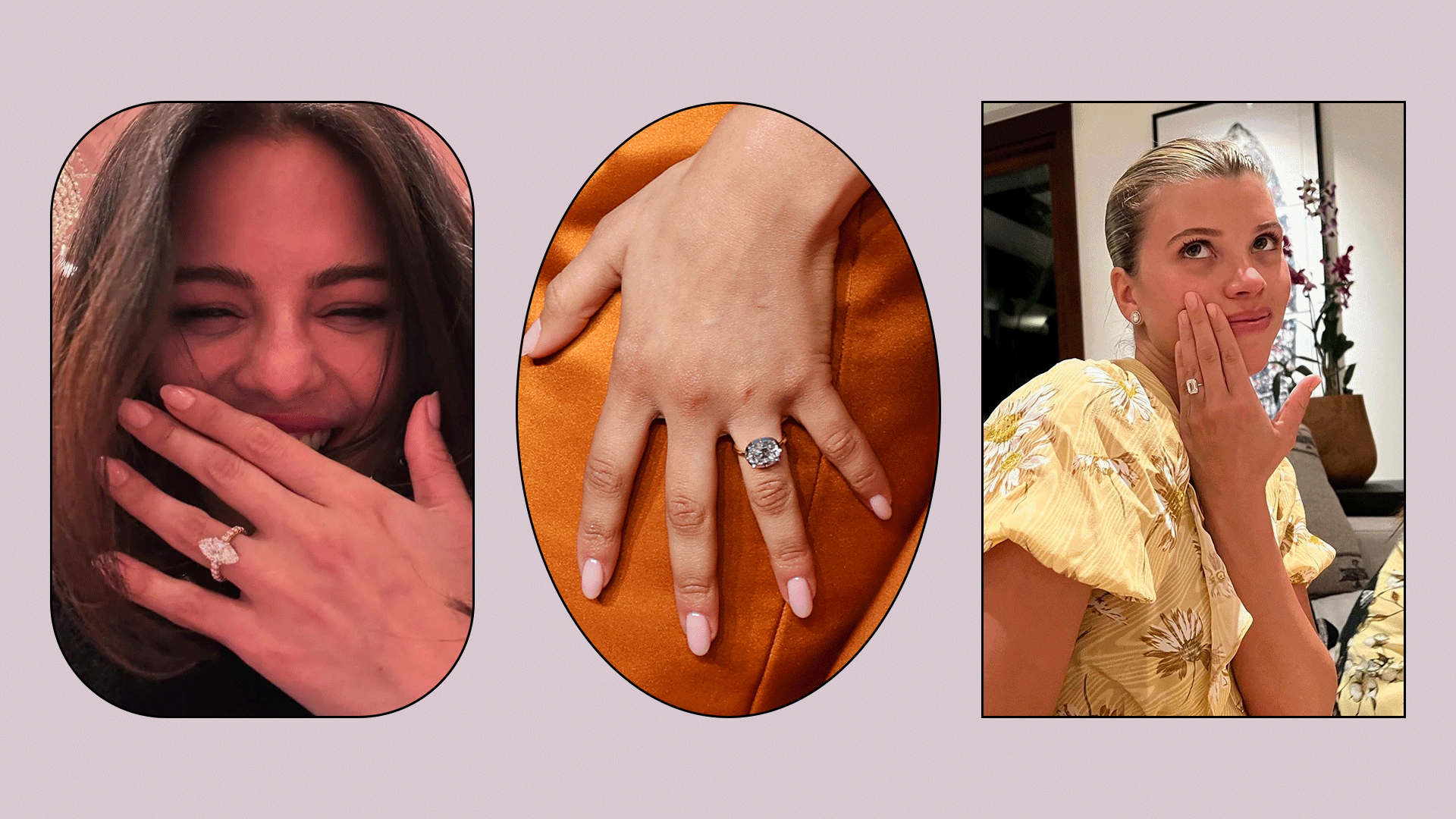

When I first started looking at engagement rings, I had no idea there were so many types of engagement-ring cuts. From the classic round to the elegant emerald and the dreamy pear shape, each diamond engagement-ring cut has its own story, sparkle, and personality. Honestly? It can get overwhelming trying to figure out which one's "the one."
I ended up picking out my diamond cut after months of deliberation (a pear!), and I've become the go-to friend for anyone who's in the market for an engagement ring. Now, I'm breaking down all of the best types of engagement-ring cuts and, most importantly, the pros and cons of each in plain, honest terms. Whether you love the idea of something timeless or want a shape that feels bold and modern, this list will help you narrow it down and find a ring that feels so you.
Where to Buy an Engagement Ring
Whether it's direct-to-consumer retailers or Insta-famous jewelers to celebrities, there are tons of places out there for you to find your perfect engagement ring. A few of my favorites include New York City–based designer Steph Mazuera for a bespoke experience; Aaryah if you're looking for funky, unique colors and shapes; and Grown Brilliance for timeless, easy-to-buy lab-diamond engagement rings.
Emerald Cut
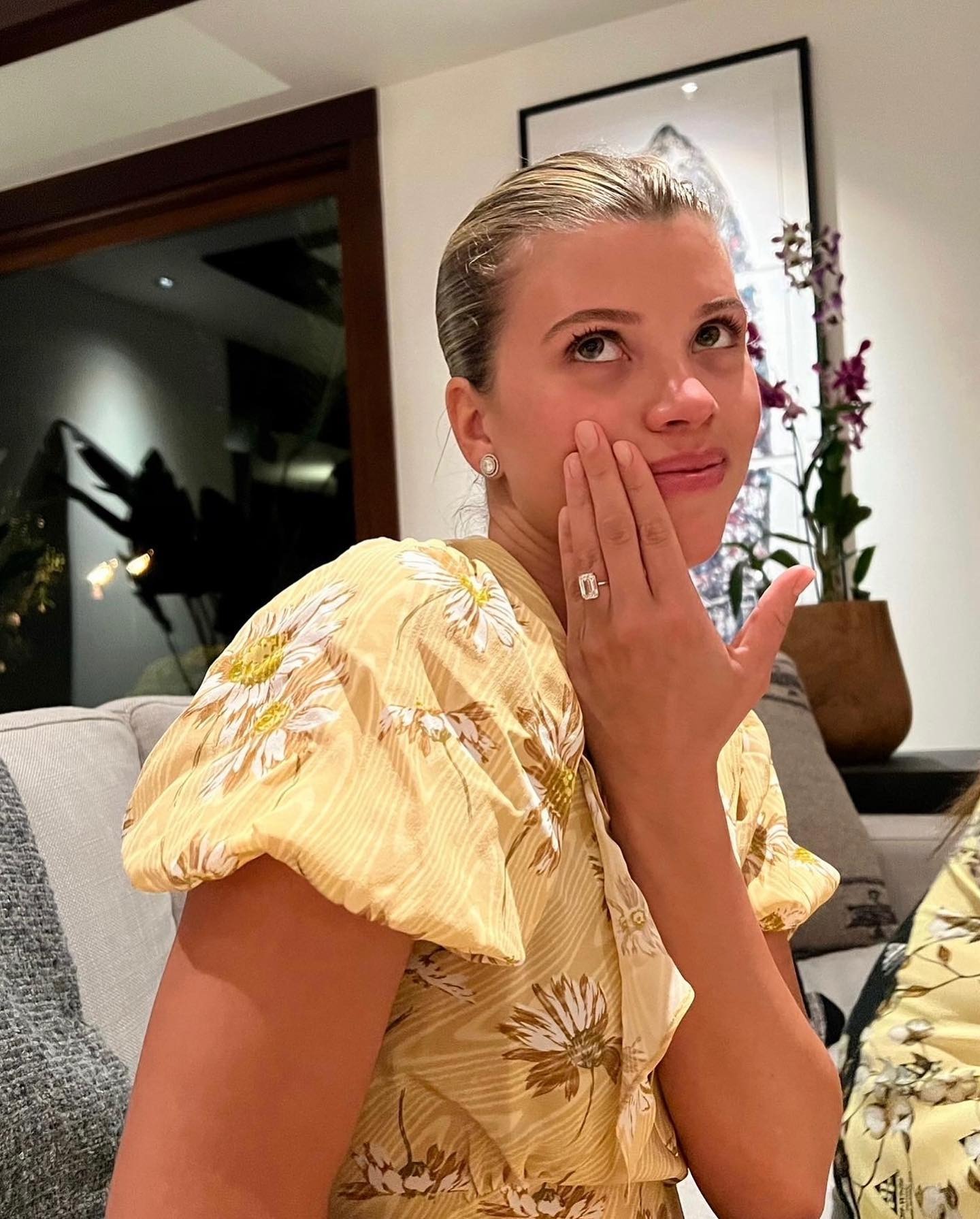
Rectangular in shape and step-cut in facets, emerald-cut diamonds are one of the more classic and popular ring-cut styles at the moment. Long, parallel facets create a "hall of mirrors" effect that, although it might not sparkle as bright as other diamonds, offers a timeless, unique look that suits anyone looking for something understated. According to Mazuera, emerald cuts feel a bit more architectural and low-key.
What to look for: "When selecting an emerald-cut diamond, you want to pay close attention to exactly how the stone was cut, even if a stone appears to be graded well on color and clarity," explains Mazuera. "The beauty of the stone can be impacted by imprecise cutting and, therefore, poor light performance. With emerald cuts especially, you want to see the stone in person and not shop based on a certificate alone."
Pros: Distinctive, ultra-luxurious reputation, elongating and flattering on the hand
Cons: Emeralds can show inclusions more than other cuts, appear darker than other cuts, and appear smaller when compared to other elongated shapes of the same carat weight.
Moval Cut
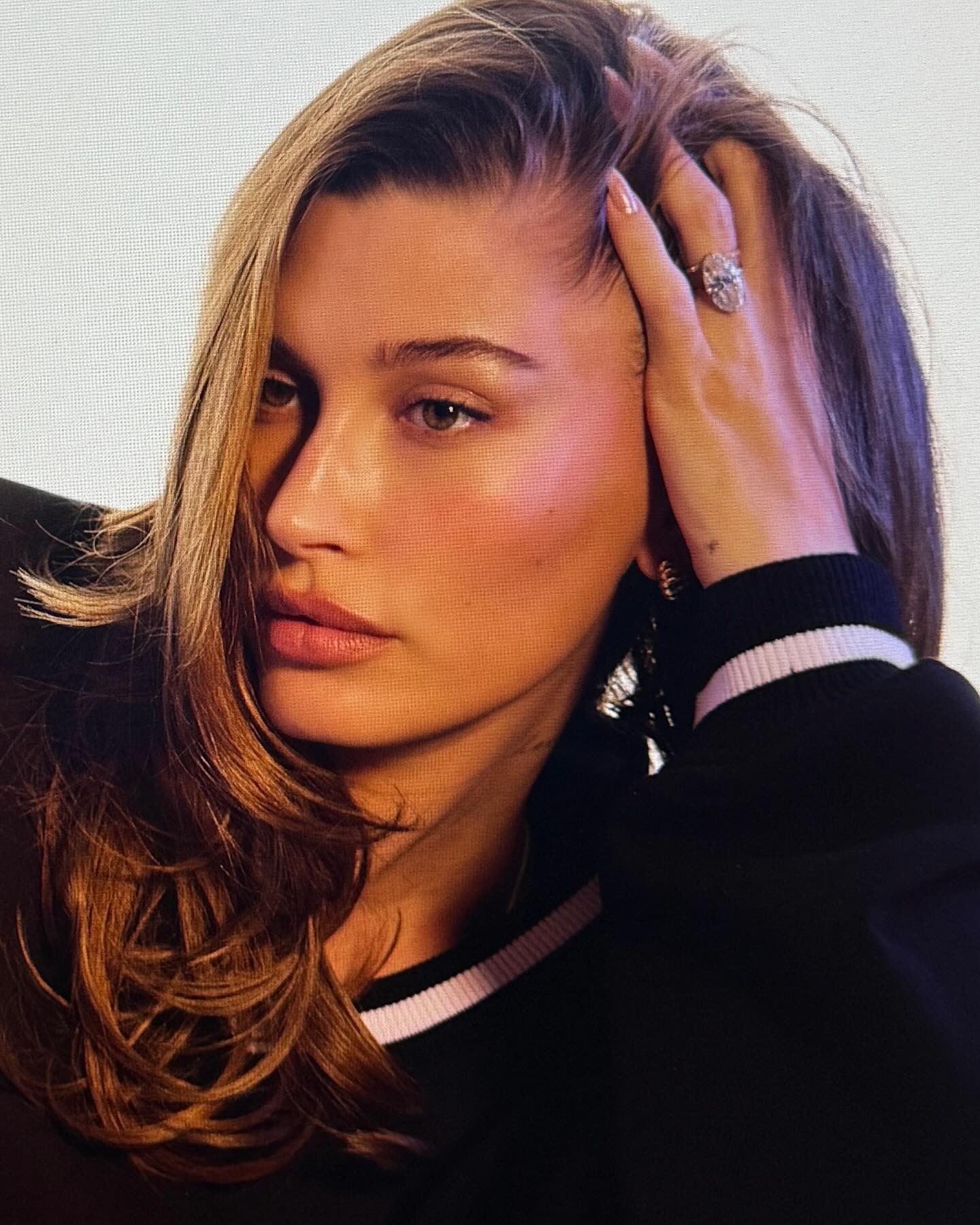
Moval-cut diamonds are a cross between oval and marquise cuts. A moval combines the ultra-elongated shape of a marquise and the soft, rounded ends of an oval cut. Most movals sit between a 1:7 and a 2:2 ratio; the larger the number the longer and thinner the diamond will appear.
What to look for: As movals are quite rare, Mazuera often custom-cuts stones to her client's specifications. "We select the perfect piece of rough diamond and use advanced software to plan every facet, ensuring the stone stays elongated while avoiding dead space or a bow-tie effect," she explains. If you're opting for a larger, "spreadier" moval-cut engagement ring, look for a stone with a ratio above a 1:7.
Pros: Elongating, flattering, lots of sparkle, often appear larger than their carat weight.
Cons: Harder to find, may need to be custom cut, can be more costly than traditional oval or marquise cuts. If the ratio is too large, movals tend to lose a bit of their brilliance due to their overelongated shape.
Brilliant Cut
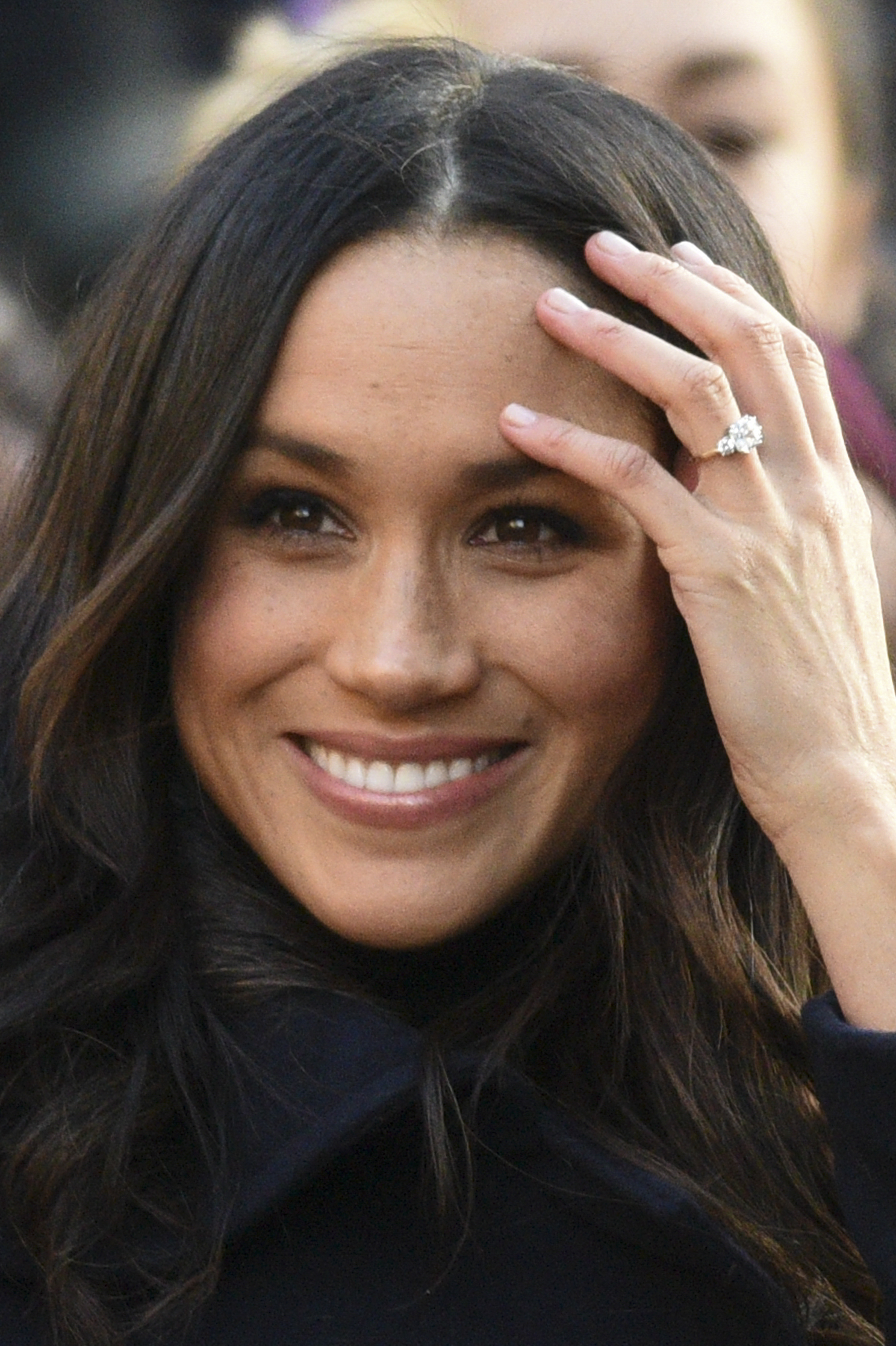
If you've ever seen a diamond engagement ring in a movie, it's probably a classic round brilliant-cut diamond ring. "The brilliant cut will always hold a special place in my heart. It's timeless, dazzling, and represents everything we love about diamonds," explains Akshie Jhaveri, founder of Grown Brilliance. "We often say the brilliant cut embodies the essence of sparkle. With 57 or 58 precisely angled facets, it's designed to reflect light in a way that feels alive—brilliance in every angle."
What to look for: When choosing a brilliant cut, Jhaveri advises people to focus on the cut quality itself, looking for something with a higher grade (such as ideal or excellent), as they'll give off that traditional sparkle a bit more.
Pros: Maximizes sparkle and feels timeless, despite the decade.
Cons: May feel a bit too traditional for some couples who are looking for more personality in their engagement rings.
Pear Cut
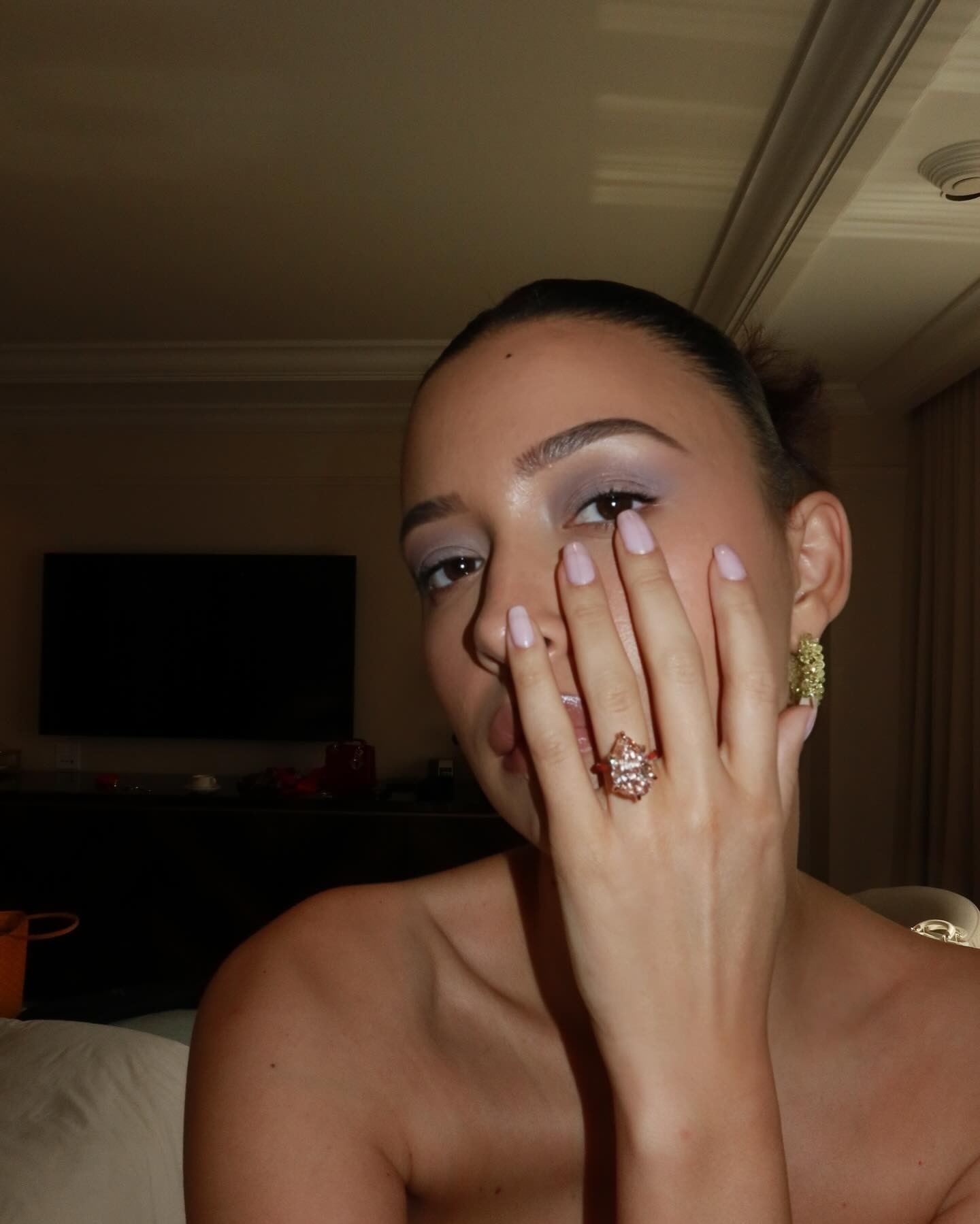
Are pears the new ovals? The internet seems to think so. Over the last few months, it feels like every It girl is flashing a chunky pear-cut engagement ring on their Instagram story. The choice makes sense—Megan Kothari, jeweler and founder of Aaryah, says. "Pears have an elegant, elongating effect on the hand. They're a unique combination of a round bottom and a pointed tip," Kothari explains. "Their different ratios give them each a distinct personality. You can go for a classic teardrop shape or for something fuller/narrower depending on how much finger coverage you want."
What to look for: When buying a pear-cut ring, look for a well-balanced shape, minimal bow tie and even color spread. If you're in the market for a spready pear, look for something that's a bit more elongated with a ratio above a 1:6. Due to the bow-tie effect that can make the center of a pear-cut diamond appear darker, it's best to view these stones in person.
Pros: Elongates the finger and can appear larger than their carat weight.
Cons: Often suffer from a bow-tie effect that can darken the stone.
Cushion and Old Mine Cuts
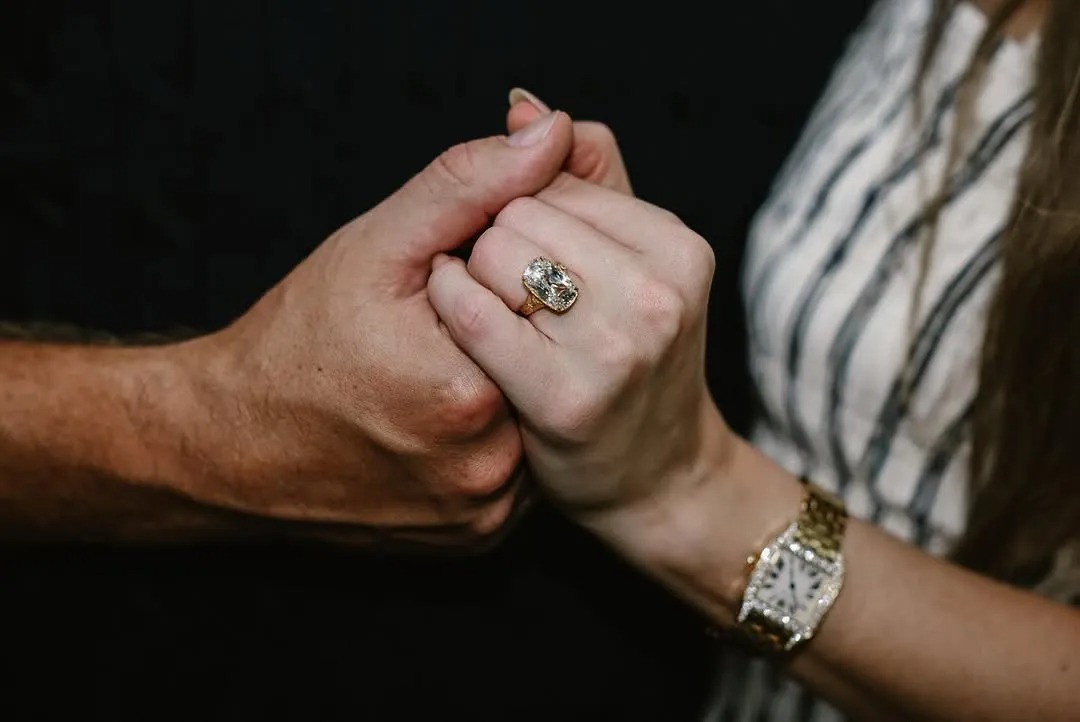
Cushions, typically marked by their romantic shape and soft, rounded pillowy edges, come in all proportions, sizes, and styles. Notably, there's been a resurgence in old mine cushion–cut rings thanks to none other than Taylor Swift, who got engaged in the style in summer 2025. "While modern cushion cuts feature a crushed ice, brilliant sparkle, antique cushions (often called old mine cuts) have fewer, larger facets, giving them a softer, glowy look," explains Mazuera.
What to look for: When searching for an antique cushion or old mine cut, Mazuera says it's best to acknowledge the stone's imperfections. "Many of these stones were cut hundreds of years ago without the use of modern tools or artificial light," she says. "Be open to lower color grades and some inclusions. It's all part of the old-world charm!"
Pros: Ultra-romantic; one of a kind; soft low-key glow.
Cons: Less availability in the market due to capped supply and ultra-high demand.
Oval Cut
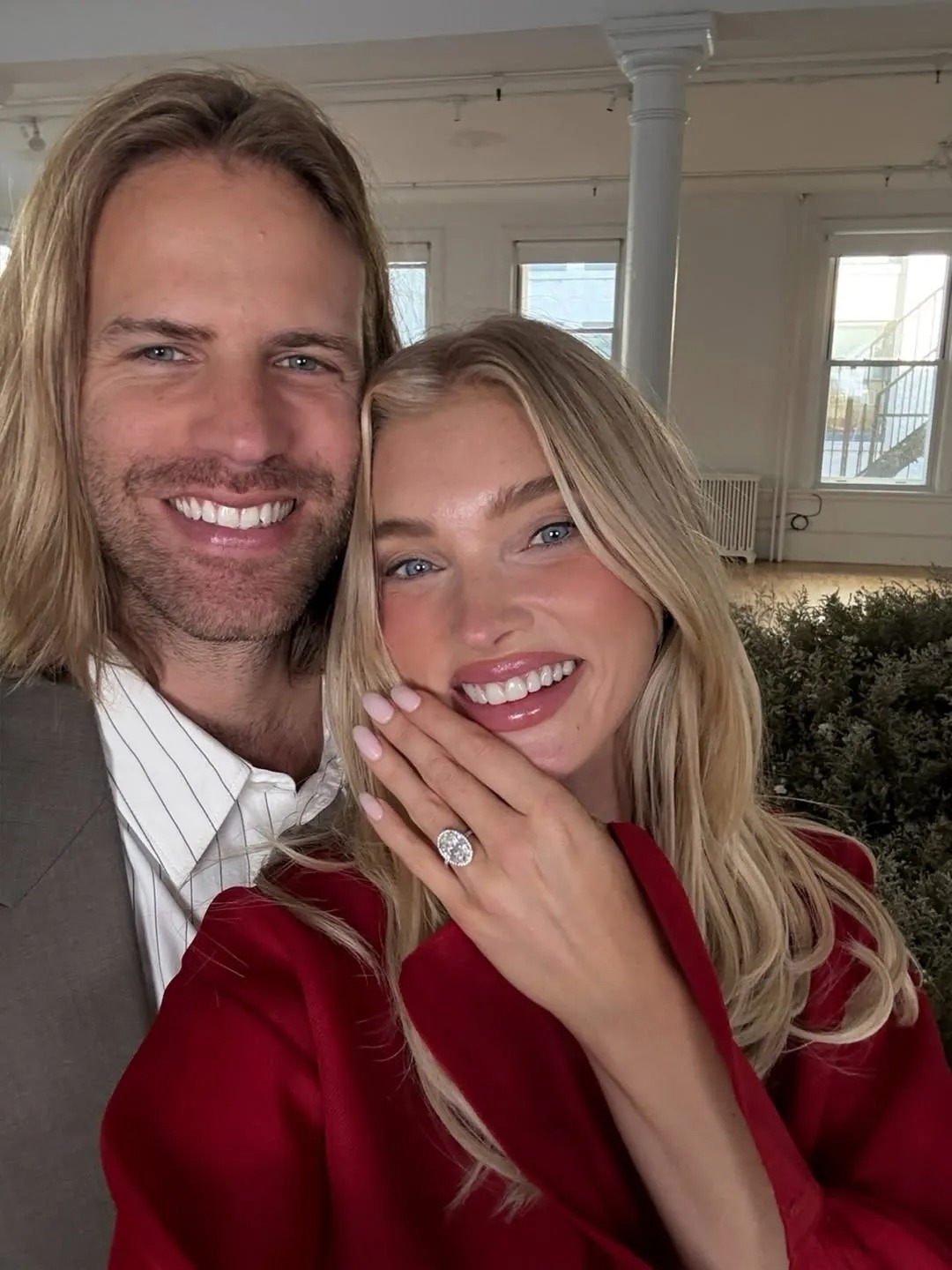
Whether it's Hailey Bieber's iconic oval-cut diamond ring or your best friend's, there's no denying the popularity of this engagement-ring cut. "Their brilliant cuts and ability to look larger than their carat weights make them a great pick for someone looking for a glamorous aesthetic," explains Kothari. "The elongated shape also elegantly lengthens the finger, rounded edges reduce chipping, and a subtle bow-tie effect adds character without compromising sparkle, making them both striking and versatile."
What to look for: "When buying an oval-cut diamond, look for even symmetry, a minimal bow-tie effect, and excellent brilliance across the entire face." Kothari adds. "Choose a length-to-width ratio that suits your style (typically 1:3 to 1:5), and aim for an eye-clean diamond with balanced color to ensure the diamond looks bright and lively."
Pros: Ovals have a soft, romantic feel and pair beautifully with almost any setting style. They appear larger than their carat weight, elongate the finger, and feel timeless.
Cons: Fancy shapes, like oval cuts, can highlight color more easily, so if you're looking for a bright, white diamond, it may cost you a bit more. Similar to pears, oval-cut diamonds are prone to visible bow ties.
Radiant Cut
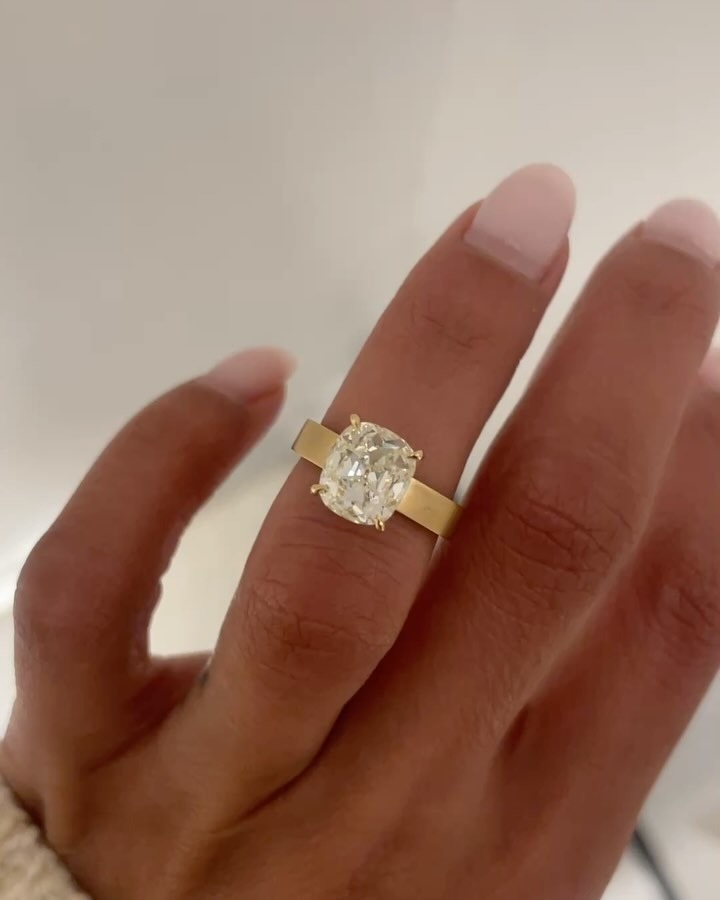
If you love the shape of an emerald cut and the sparkle of a round, brilliant stone, meet your new favorite diamond cut. The radiant cut is a beautiful blend of sparkle and sophistication for people who want the best of both worlds.
What to look for: When choosing a radiant cut, pay attention to the depth and proportions since that affects how the light dances inside the stone, according to Jhaveri. When shopping, prioritize color and cut to maximize the bright, sparkling effect you'd typically get in a radiant cut.
Pros: Often considered one of the most flattering and elongating cuts out of the square-cut diamond family.
Cons: Finding the exact length and width ratio may be tricky depending on what you're looking for, as every diamond has slightly different faceting due to size.
Asscher Cut
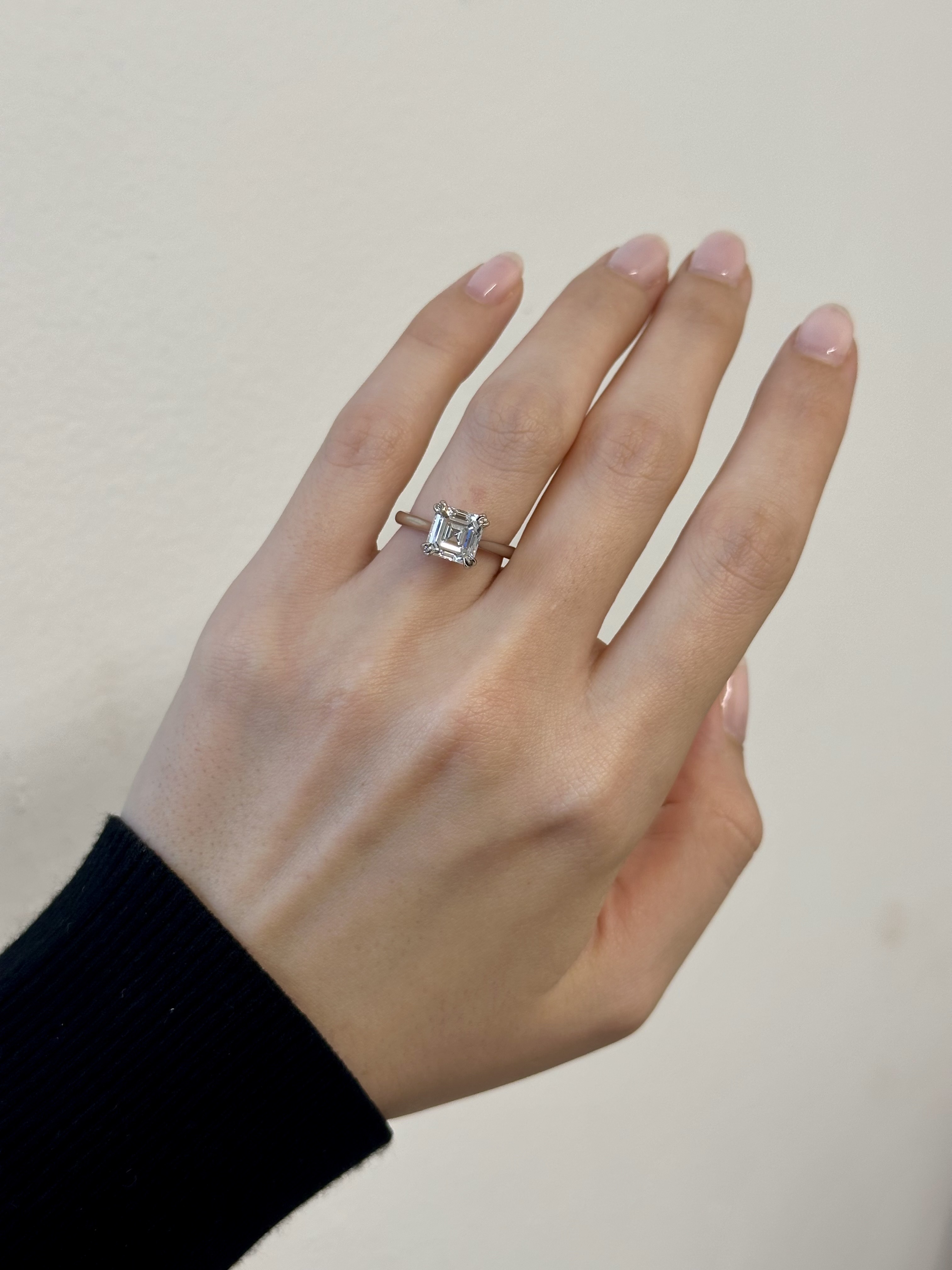
Similar to emerald-cut diamonds, Asscher-cut diamonds are step cuts. They feature long, parallel facets that are symmetrical and illuminating. Often set on simple solitiare settings or in fresh-feeling art-deco designs of the 1920s and 1930s, Asscher-cut diamonds are slowly gaining speed again.
What to look for: Similar to emeralds, color grade and clarity are nonnegotiable since the way light refracts in an Asscher cut makes imperfections much easier to spot. Make sure your stone is eye-clean (above a VS2).
Pros: Very sophisticated and set to be massively trendy over the next few years.
Cons: Must be very well cut to not fall flat, can show inclusions more than radiant cuts, and quite bottom-heavy, leading stones to appear much smaller than their actual carat weight.
Marquise Cut
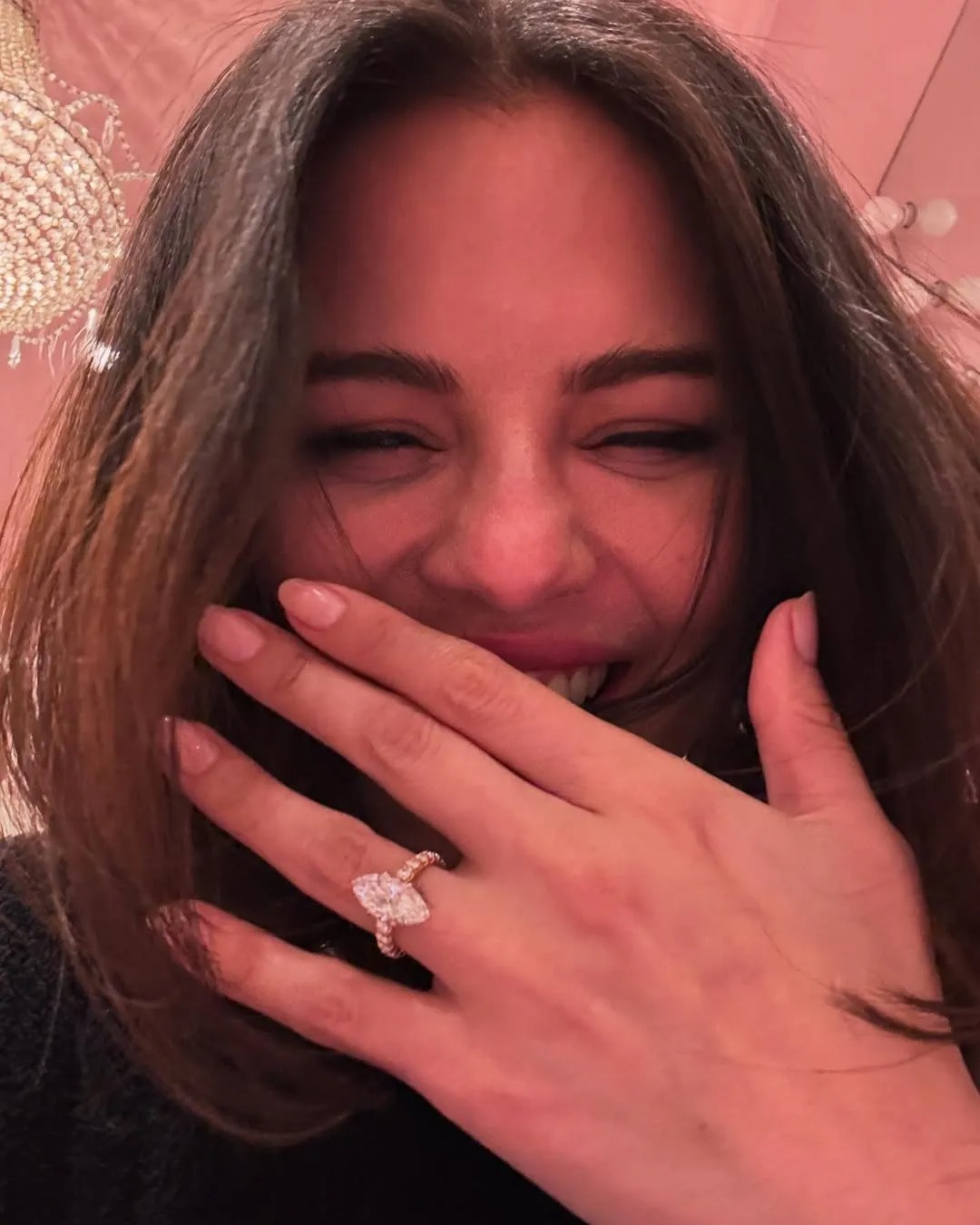
If you want to twin with Selena Gomez, this is your sign. The modern marquise cut is known for its striking, elongated silhouette with pointed ends, giving it a regal, vintage feel that celebrities have been loving lately. "Because of its length and that this cut maximizes carat weight, it offers incredible finger coverage and creates the illusion of a larger stone per carat weight," notes Kothari. "Its shape also gives a beautiful, elongating effect on the hand, like a pear but with a more symmetrical outline."
What to look for: Symmetry is key. Look for aligned points and evenly curved sides to get the slimming, elongating effect that marquis-cut diamonds are known for.
Pros: Incredibly spready, meaning marquis-cut diamonds appear much larger than their carat weight on average.
Cons: Marquises are a bit more delicate at the tips, so a setting with protective prongs is a must. A strong bow tie can appear if they are poorly cut.
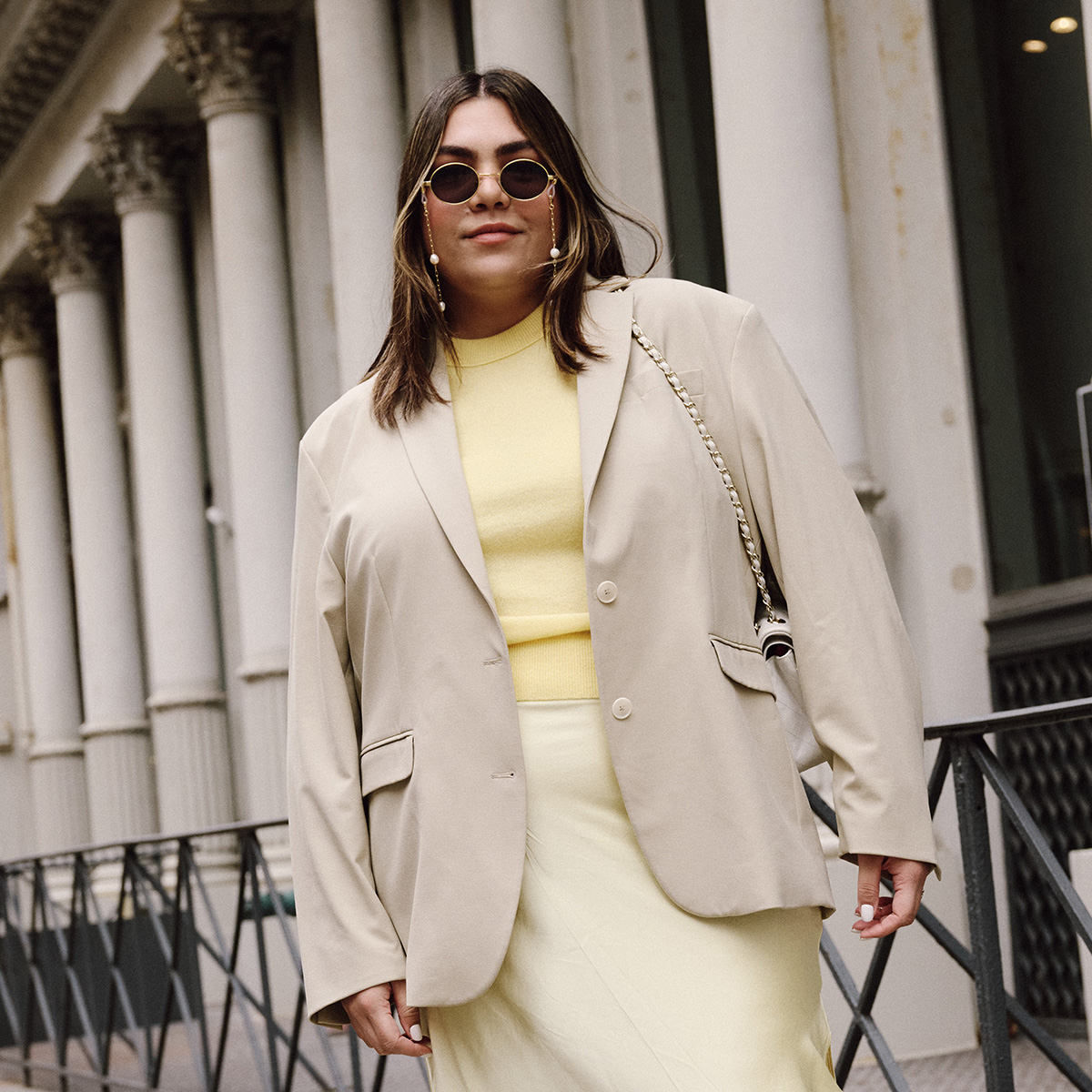
Ana Escalante is an award-winning journalist and Gen Z editor known for her sharp takes on fashion and culture. She’s covered everything from Copenhagen Fashion Week to Roe v. Wade protests as the Editorial Assistant at Glamour after earning her journalism degree at the University of Florida in 2021. At Who What Wear, Ana mixes wit with unapologetic commentary in long-form fashion and beauty content, creating pieces that resonate with a digital-first generation. If it’s smart, snarky, and unexpected, chances are her name’s on it.
